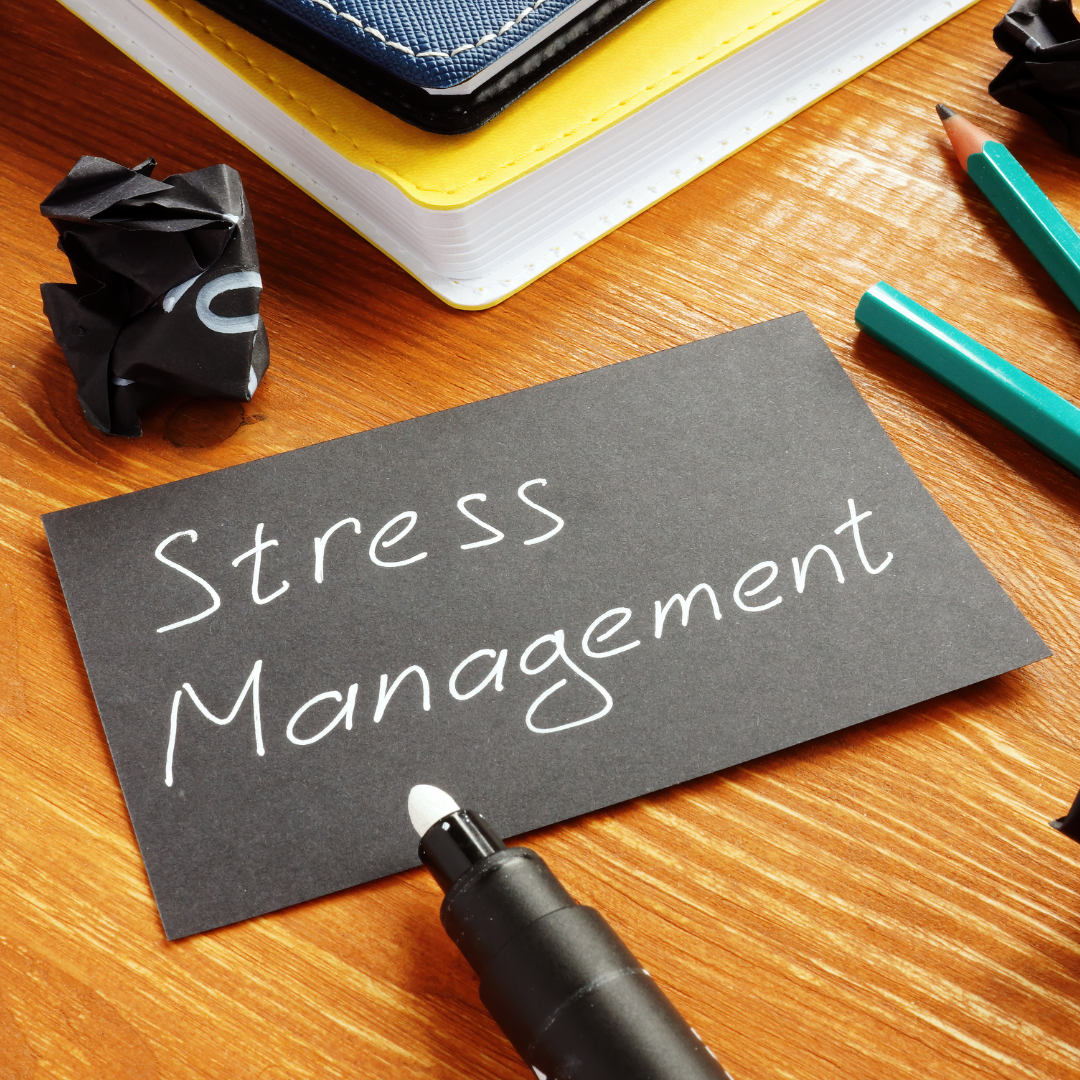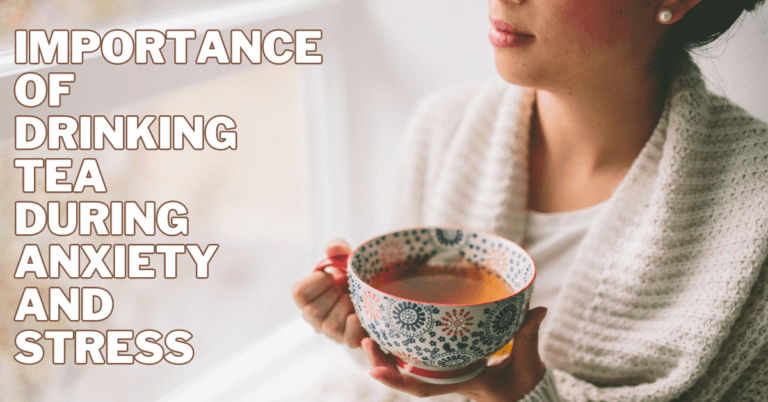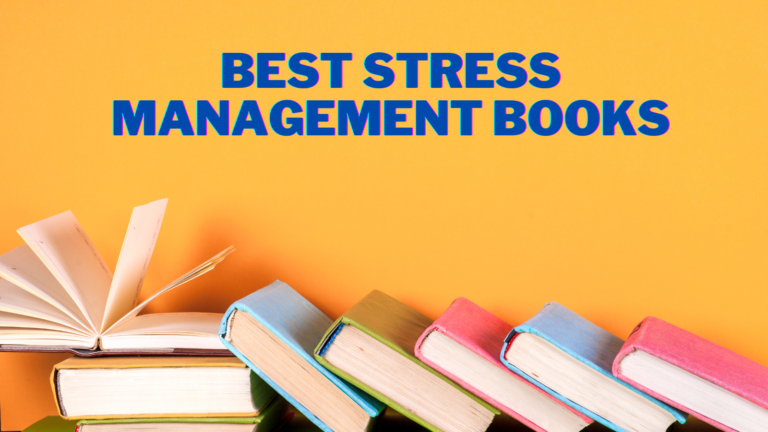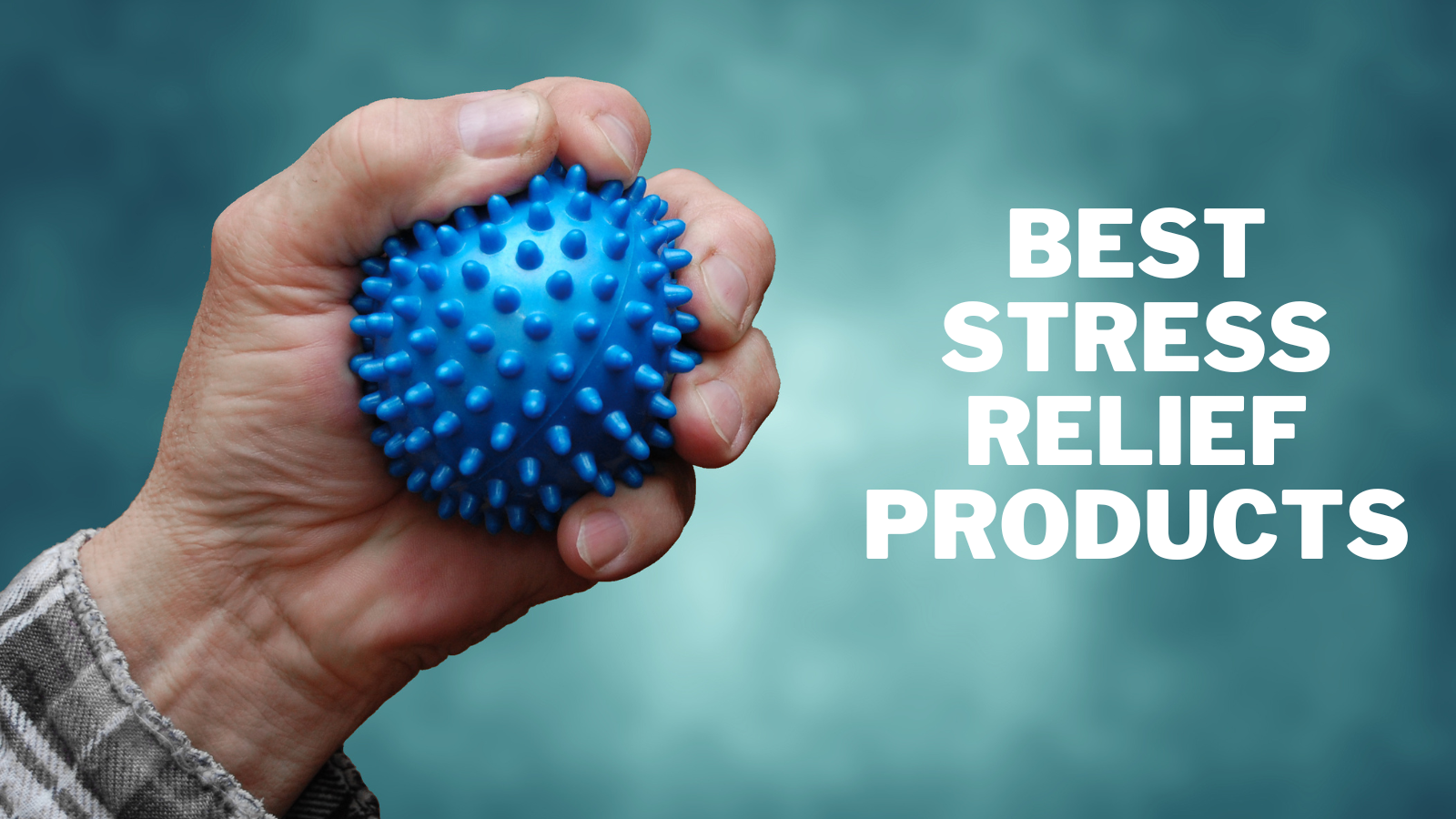An Overview Of Stress Management
An Overview Of Stress Management
Chronic stress has become more commonplace than unusual in modern life. Due to the pressures of contemporary life, including constant multitasking, information overload, and the rapid speed of change, we may feel emotionally spent and overburdened.
Additionally, the COVID-19 pandemic and social upheavals have brought new stressors to our lives, adding to the overall burden of stress. We must use practical stress management techniques to protect our well-being during these trying times.
Stress management includes various methods and tactics because they enable people to deal with stress more successfully and lessen its harmful effects. Adopting healthy behaviours can create resilience, improve our general well-being, and use useful tools.
By forming healthy habits and implementing useful techniques, we can foster resilience, strengthen our general well-being, and recover balance amid life's obstacles.
This article aims to provide an overview of stress management, exploring various approaches and offering valuable insights into incorporating stress-reducing practices into our daily lives.
Whether you are a student, a working professional, or seeking to regain control of your well-being, the following information will serve as a roadmap for better stress management.
Harnessing Serenity: The Importance Of Stress Management
Due to its profound effects on our general well-being, stress management is of utmost importance. Here are some significant facts emphasizing why stress management is essential:
1. Mental And Emotional Health
Stress can lead to various mental and emotional health issues, including anxiety disorders, depression, and burnout. Persistent stress may impact our capacity to reason, make judgments, and lead fulfilling lives.
Effective stress management techniques improve brain clarity, lessen these symptoms, and increase emotional toughness.

2. Physical Well-Being
Stress affects our physical well-being. It can result in a compromised immune system and a higher risk of cardiovascular conditions, digestive disorders, and musculoskeletal problems. However, stress management techniques can lessen its physiological impacts.
By practicing stress management tactics, we may diminish the physiological consequences of stress, maintain better physical health, and improve our body's capacity to deal with and recover from illnesses.
3. Productivity And Performance
Stress can make it difficult to be productive and perform well in various areas, including job, school, and extracurricular activities.
Unmanaged stress can result in less motivation, lower creativity, diminished memory, and poor concentration. By managing stress well, we can enhance our cognitive functioning, sharpen our attention, and increase productivity and effectiveness in every area of life.
4. Relationship And Communication
Stress can affect how people relate to one another and how they communicate. It can cause impatience, mood fluctuations, and a lack of patience, all of which can harm performance.
By controlling our stress levels, we may improve our ability to regulate our emotions, improve our communication abilities, and create more positive interpersonal interactions.

5. Self-Care And Well-Being
Practicing stress management is a form of self-care and self-compassion.
Stress management is given top priority since it shows our dedication to our health and recognition of the value of taking care of ourselves even when facing difficulties in life.
Exercise, meditation, and other stress-reduction strategies help people become more aware of themselves, accept themselves, and feel more balanced and content overall.
6. Long-Term Health Effects
Unmanaged stress can hurt our well-being and longevity. The risk of chronic diseases like diabetes, hypertension, and autoimmune illnesses is increased by persistent stress.
When we proactively manage stress, the possibility of these health problems decreases, and our chances of enjoying a better and more fulfilling life increase.
7. Strengthened Coping Skills
Stress is a natural part of life, and developing coping mechanisms helps us deal with challenging circumstances. Establishing good coping methods, such as problem-solving, positive reframing, and seeking support, can help us more effectively manage stressors and preserve a sense of control and resilience in the face of difficulty.

8. Better Sleep Quality
Stress substantially negatively impacts our sleep cycles, resulting in insomnia or insufficient sleep. Sleep is essential for physical and mental recovery, and a lack of sleep over an extended period can increase stress levels.
Practicing stress-reduction tactics aids in mind-calming and relaxation and develops sound sleep patterns, improving sleep quality and general well-being. Stress management is essential for our mental, emotional, and physical health.
By practicing good stress management, we may improve our coping abilities, sleep better, become more self-aware, make better decisions, manage our time more efficiently, and promote emotional well-being.
In the long run, spending money on stress management enables us to live healthier, more balanced lives and equips us with the resilience and grace necessary to face life's challenges.

Tips For Stress Management
It's challenging to avoid feeling overloaded. Balancing work and family obligations can make you too busy and stressed out.
Your emotional and physical health, though, can suffer if you don't make time to relax. While it will take some time, you can learn how to control your stress.

1. Practice Mindfulness
Mindfulness exercises help us focus on the now without passing judgment, which is one of the most effective ways to handle stress.
Deep breathing exercises trigger the body's relaxation response. These exercises involve taking slow, deep breaths while concentrating on the sensation of the breath entering and exiting your body.
This reduces tension. Meditation is setting aside time to sit quietly and study your thoughts and feelings while developing a passive and accepting attitude.
It encourages calmness, focus, and emotional equilibrium. Intentionally focusing on your current experience, such as enjoying the flavour of your food, noticing the wonders of nature, or giving a task your full attention without interruptions, is a key component of mindful awareness of the present moment.
You can increase your self-awareness and foster compassion by engaging in mindfulness practices. Mindfulness can improve self-awareness, build a peaceful, focused mind, and lower stress levels. This is done by letting go of worries about the past or the future and focusing on the now.
2. Identify Your Stress Triggers
Recognizing triggers is a crucial first step in stress management. It entails pausing to think and becoming conscious of the particular circumstances, occurrences, or ideas that repeatedly cause you to feel more stressed.
These reasons can include work deadlines, money worries, relationship issues, or even specific surroundings or social circumstances, and they can vary widely from person to person.
By recognizing your stress triggers, you can obtain important insights into the underlying reasons for your stress and create effective enforcement or avoidance methods.
For instance, if you discover that busy, noisy locations raise your stress levels, you can make proactive plans to avoid them or develop coping mechanisms, like wearing noise-cancelling headphones.
Understanding your stress triggers also enables you to take preventative actions, such as creating clear boundaries or efficient communication techniques, to lessen their negative effects on your well-being.
Overall, you have more control over your stress reaction and may design targeted strategies to manage stress more effectively by recognizing and treating your stress triggers.
3. Develop Healthy Coping Mechanisms
Learning healthy coping skills is key to efficient stress management. Developing healthier substitutes rather than reverting to unhealthy behaviours that may offer momentary relief but have detrimental long-term effects is critical.
Regular physical activity helps release endorphins, enhance mood and lower stress. Examples include walking, yoga, and team sports.
Another powerful coping technique is journaling, which allows one to express and process ideas and emotions while gaining clarity and perspective.
In addition to being a form of relaxation and an emotional release, listening to music can be peaceful.
You can direct your energy into something pleasurable and gratifying by taking up a hobby or creative activity, like gardening, playing an instrument, or painting.
These pursuits give people a sense of direction, a way to escape stressful situations, and a way to express themselves.
Cultivating good coping skills can help you manage stress productively and long-lastingly. These skills will improve your general well-being and resilience when facing difficulties.

4. Practice Time Management
Practicing efficient time management is crucial to lowering stress and boosting productivity. Poor time management can result in feeling sacked, overburdened, and always playing catch-up.
You can efficiently allocate your time and energy and set project priorities. This lets you identify and concentrate on the most crucial and pressing ones.
Making a timetable or to-do list can help you envision and manage your day, ensuring you allot time for each task or activity.
When more complex tasks are broken down into smaller, more manageable chunks, the feeling of overwhelm is lessened, and a clear route to completion is offered.
This allows you to approach the task at hand in a more structured and systematic manner.
Furthermore, setting realistic deadlines and goals can help avoid procrastination and last-minute rushes, which can greatly increase stress.
To effectively manage your time, you must also recognize and reduce time-wasting behaviours and distractions, such as excessive use of social media or needless multitasking.
Using these time management techniques, you may operate more structured and productively, which will help you maintain your focus and reduce stress.
5. Establish Boundaries
Limits must be established for stress management and preserving a healthy work-life balance. It entails being aware of your boundaries and learning to refuse requests or obligations that are excessive or may become too much for you to handle.
Establishing clear limits can protect your time, energy, and well-being. It's critical to convey your boundaries to others respectfully and assertively, outlining your demands and restrictions.
Depending on your busy schedule, this may entail assigning jobs to others, rearranging deadlines, or kindly declining to take on additional duties.
You may prioritize your physical, mental, and emotional well-being by setting limits and making room for self-care.
Taking pauses, scheduling downtime, participating in activities that make you happy, and scheduling time for activities outside of work are some examples of how to do this.
Remember that setting limits is not selfish; it's essential for maintaining your well-being and avoiding burnout. Establishing clear boundaries and prioritizing self-care gives you the power to manage stress effectively and balance your personal and professional lives.
6. Cultivate A Supportive Network
Building a supporting network is essential for stress management and increasing general well-being. You can find an invaluable source of emotional support by surrounding yourself with a network of encouraging people, such as family, friends, or coworkers.
When you talk to them about your feelings and worries, your trusted friends and family members can provide empathy, understanding, and a new viewpoint on your difficulties.
Having someone listen can be a huge relief and a source of validation. Asking for the advice of individuals you trust can also help you find insightful information and workable ideas to help you manage your stress better.
Engaging in fun activities or spending quality time with your support network is a source of consolation, relaxation, and a much-needed reprieve from pressures.
The ability to reciprocate is another benefit of being a part of a caring community.
Being part of a supportive community also fosters a sense of belonging and purpose because it enables one to give and receive support while helping others.
Building a strong support system can help you feel more connected, experience less loneliness, and provide a helpful tool for navigating and managing stress through face-to-face meetings, phone calls, or online communication.

7. Take Breaks And Rest
The key to controlling stress and preserving general well-being is to give oneself permission to rest and take breaks.
There is a chance to refresh and recharge regularly throughout the day. Participating in leisurely pursuits during these breaks might help lower stress levels and boost productivity.
Taking brief walks or doing other modest exercises can relieve stress, allow one to breathe in fresh air, and promote blood circulation.
This will also offer your body a break from prolonged sitting. During holidays, engaging in mindfulness exercises can help you focus on the here and now, which will help you unwind and manage your stress.
You can do this by focusing on your breathing deeply, practicing meditation, or objectively observing your surroundings. Temporarily turning off your technology during breaks might also be very good.
Continuous screen time and digital notifications can cause mental tiredness and increased stress. Instead, take advantage of your breaks to indulge in mind- and soul-nourishing activities like reading, relaxing music, or working on a creative pastime.
By emphasizing regular breaks and implementing relaxing hobbies, you provide yourself with valuable opportunities to recharge, reduce stress, and improve your general well-being.
8. Prioritize Self-Care
Setting self-care as a top priority is essential for stress management and sustaining general well-being. Prioritizing self-care includes activities that feed your mind, body, and spirit.
Adequate sleep is essential for your body to repair and regenerate, enhance cognitive performance, and lower stress levels.
Eating nourishing meals gives your body the energy and nourishment to operate at its best, boosting your physical and mental well-being.
Regular exercise, such as going to the gym, doing yoga, or attending a dance class, not only increases physical fitness but also releases endorphins, boosting mood and lowering stress.
Self-compassion means being kind, considerate, and accepting of yourself, particularly when it is difficult.
Partaking in things that make you happy and fulfilled, such as developing a hobby, spending time in nature, or exercising creativity, can help you attain a sense of purpose and fulfillment.

9. Engage In Regular Physical Exercise
Physical activity greatly reduces stress and enhances overall well-being. It has several advantages for the body and the mind.
Exercise causes your body to release endorphins, organic compounds that improve mood and reduce stress, anxiety, and despair.
These endorphins produce a happy, euphoric feeling, frequently called the “runner's high.” Regular exercise can also help you feel better by lowering stress chemicals like cortisol and raising feel-good neurotransmitters like serotonin levels.
The practice has positive biochemical effects and is a good stress reliever. It enables you to direct your energy and sentiments toward a worthwhile endeavour, which can help you relax and lessen feelings of overwhelm.
It's important to find a physical activity that you like, and that fits into your routine, whether it's jogging, yoga, swimming, or playing team sports.
Try to work out at least 30 minutes most days of the week at a moderate intensity, but even quick bursts of activity can reduce stress.
To minimize overexertion, choose activities that meet your tastes and degree of fitness, and pay attention to your body.
By introducing regular physical activity, you can gain the physical, mental, and emotional advantages that support stress reduction and general well-being.
Conclusion
So, stress management is essential to maintaining a healthy and balanced existence. By being aware of how stress affects our physical and mental health, we can proactively implement methods to lessen its impacts.
This article has examined various stress-reduction strategies, such as mindfulness, healthy coping skills, prioritizing self-care, setting boundaries, building a network of friends and family, time management, and breaks.
These methods empower people to manage their stress levels, strengthen their resilience, and advance their general well-being.
Remember that stress management is a lifelong process that requires self-awareness, dedication, and adaptability. I trust you enjoyed this article about An Overview Of Stress Management. Please stay tuned for more blog posts soon.
JeannetteZ
>>>Please click here to read my all-inclusive article about Lessons That Will Teach You All About Stress<<<
>>>Are you interested in Natural Healing And Stress Relief through Herbs? Please click here for my #1 Recommendation<<<
Your Opinion Is Important To Me
Do you have thoughts, ideas, or questions? I would love to hear from you. Please leave me your questions, experience, and remarks about An Overview Of Stress Management in the comments section below. You can also email me at Jeannette@Close-To-Nature.org.
Disclosure
This post may contain affiliate links. I earn from qualifying purchases as an Amazon Associate and other affiliate programs. Please read my full affiliate disclosure.
You might also enjoy these blog posts:
9 Great Reasons Why Crying Is Good For You








